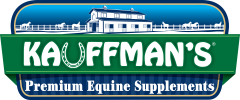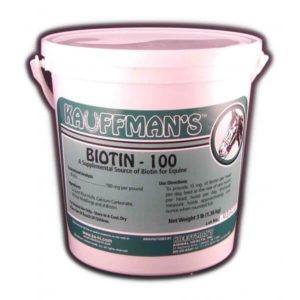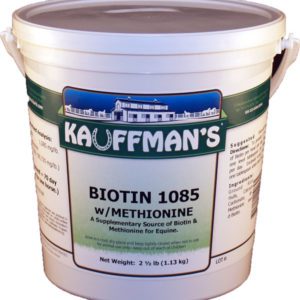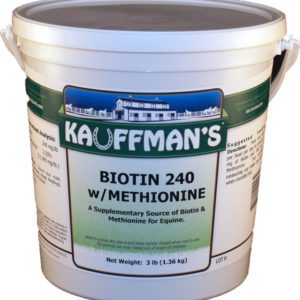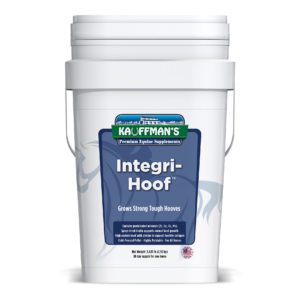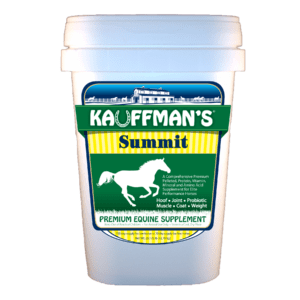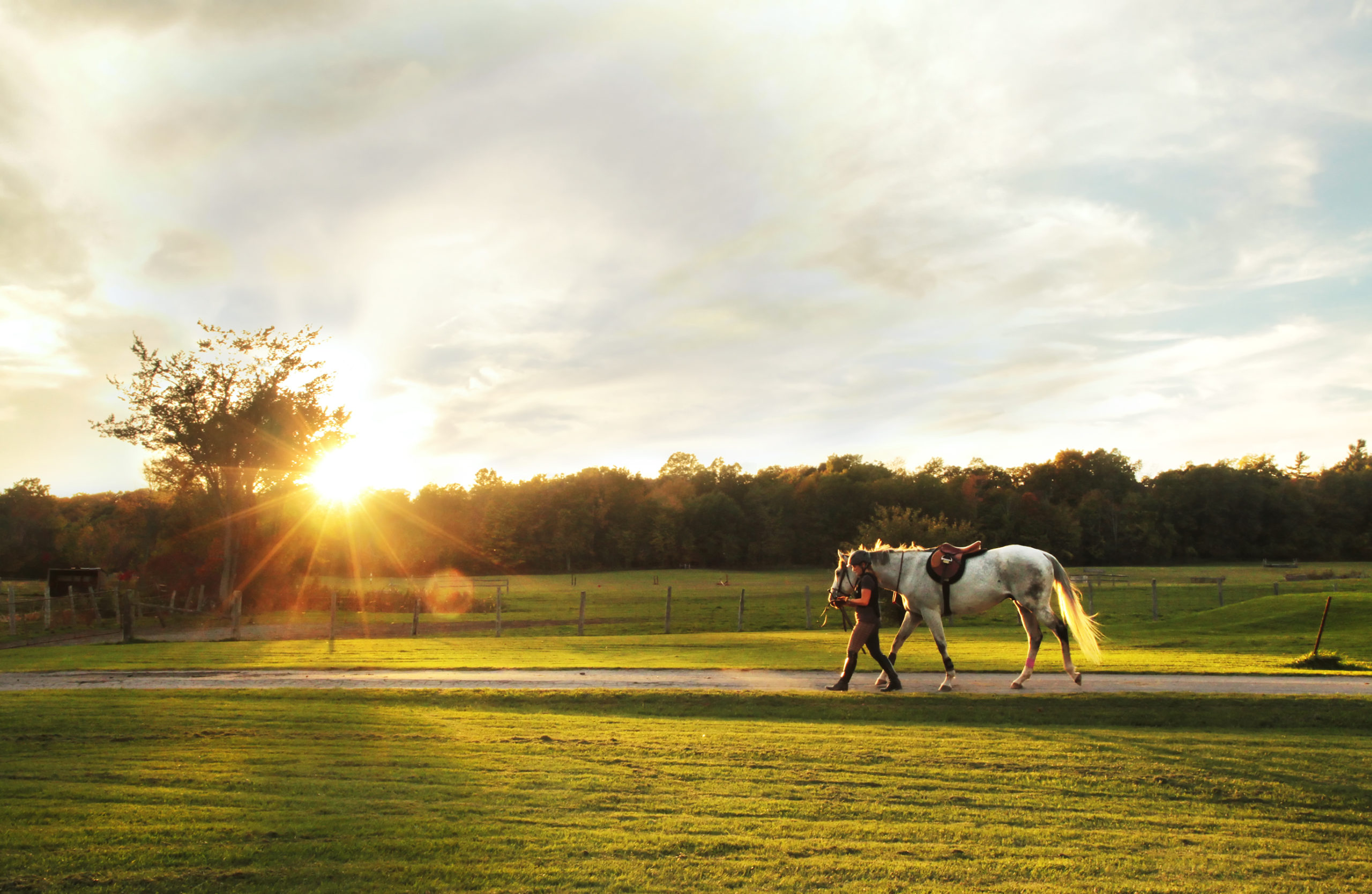
Hoof Supplements
Horse Hoof Supplements
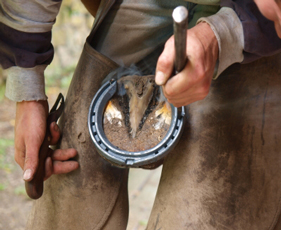
At KAUFFMAN’S®, a division of Daniel Baum Company, we offer a variety of supplements to help maintain your horse’s healthy systems and body parts, including the hooves.
You can use equine hoof supplements along with other maintenance techniques to maintain health in your horse’s hooves. Starting with our INTEGRI-Hoof, a No. 1 recommended hoof supplement by Horse Journal. Order now to receive horse hoof supplements from KAUFFMAN’S®.
Supplements and Ingredients for Horse Health
At KAUFFMAN’S®, we offer several types of horse hoof supplements to add to your horse’s nutritional regimen. Some of the ingredients we use that can maintain hoof health include:
- Biotin: Biotin is a vitamin that supports the growth of cells. Because it helps generate substances like keratin and collagen, humans commonly use biotin supplements to protect hair, nails and other similar body features. Similarly, biotin can support the strength and durability of horse hooves.
- Methionine: Methionine is an amino acid that offers a high level of health support. Amino acids lead to the production of healthy proteins. Methionine promotes the normal wellbeing of cells in the body, which can help maintain hoof health.
- Hoof-supportive minerals: Many types of minerals can sustain the proper physical functioning of horse hooves, including zinc, iron, calcium and copper. We incorporate these minerals into our supplements to preserve the health of your horse’s hooves.
How Horse Hooves Function
Horses need solid, sturdy hooves so they can gallop, frolic and do all the things a healthy horse should do. Horses’ hooves support their bodies when they move around. Healthy hooves act as a necessary protection and need maintenance to keep them sound and strong.
Here’s a brief overview of how horse hooves function.
External Components of the Hoof
The main external parts of a horse’s hoof include:
- Outer wall: When you look at the hoof, you will notice the solid surface surrounding the foot, which is known as the outer wall. This component exists without any nerve endings and acts as a shield, protecting the inside parts and helping to absorb shock.
- Laminar layer: Just below the outer wall of the hoof is the laminar layer, which also acts as a protective element. It is made up of many laminae leaves that attach the coffin bone to the hoof wall. Unlike the outer wall, laminae have nerves and blood vessels that support healthy legs and feet.
- Sole: The sole is a thick structure at the bottom of the hoof which, like the wall, protects the inside of the hooves. Having a healthy sole offers support against ground debris.
- Frog: The frog is a V-shaped structure at the bottom of the hoof with sensitive nerve endings and shock-absorbing ability. It helps add traction to the feet so your horses can move around in many different environments.
Internal Components of the Hoof
Within the outer and inner hoof wall, there are several internal structures, including:
- Coffin bone: The coffin bone takes up most of the space within the wall and stays in place with the help of the sole and the laminae leaves of the laminar layer. The bone’s shape is similar to that of the hoof’s outer layer.
- Digital cushion: The digital cushion is a pliable hoof material that sits at the back of the foot and keeps the heels flexible as the horse moves. Since the digital cushion is more malleable, it acts as a shock absorber for the horse’s feet.
How to Maintain Healthy Hooves
If your horse has healthy hooves that function normally, you want them to stay that way. Maintaining hoof health comes down to three major factors: regular foot care, nutrition management and environmental management.
Horse Foot Care
You can use a combination of methods to support the wellbeing of your horse’s hooves:
- Cleanliness: Cleaning out the bottom of your horse’s hooves will help maintain good hygiene.
- Regular trimmings: Your horse’s hoof wall is made of a keratinous substance that grows similarly to fingernails. Having their hooves trimmed every month or two can help them stay in normal shape.
- Physical activity: Horses, like most animals, benefit from regular physical exercise. Getting them moving can support healthy blood circulation to their feet and maintain strong hooves.
Nutrition Management
Many owners protect their horses’ overall wellness and hoof health with a balanced diet consisting of key nutrients. To maintain good health, it’s important to manage a horse’s nutrition and keep them on nourishing foods that will support their bodies. For example, a diet filled with crucial vitamins, fats and proteins promotes effective functioning of all parts of the body, including complex hoof structures.
Environmental Management
Horses constantly use their hooves to navigate their environment. To promote your horse’s hoof health, keep them in a relatively dry, grassy pasture. Staying dry can help support the proper functioning of the hooves and their many interrelated parts.
